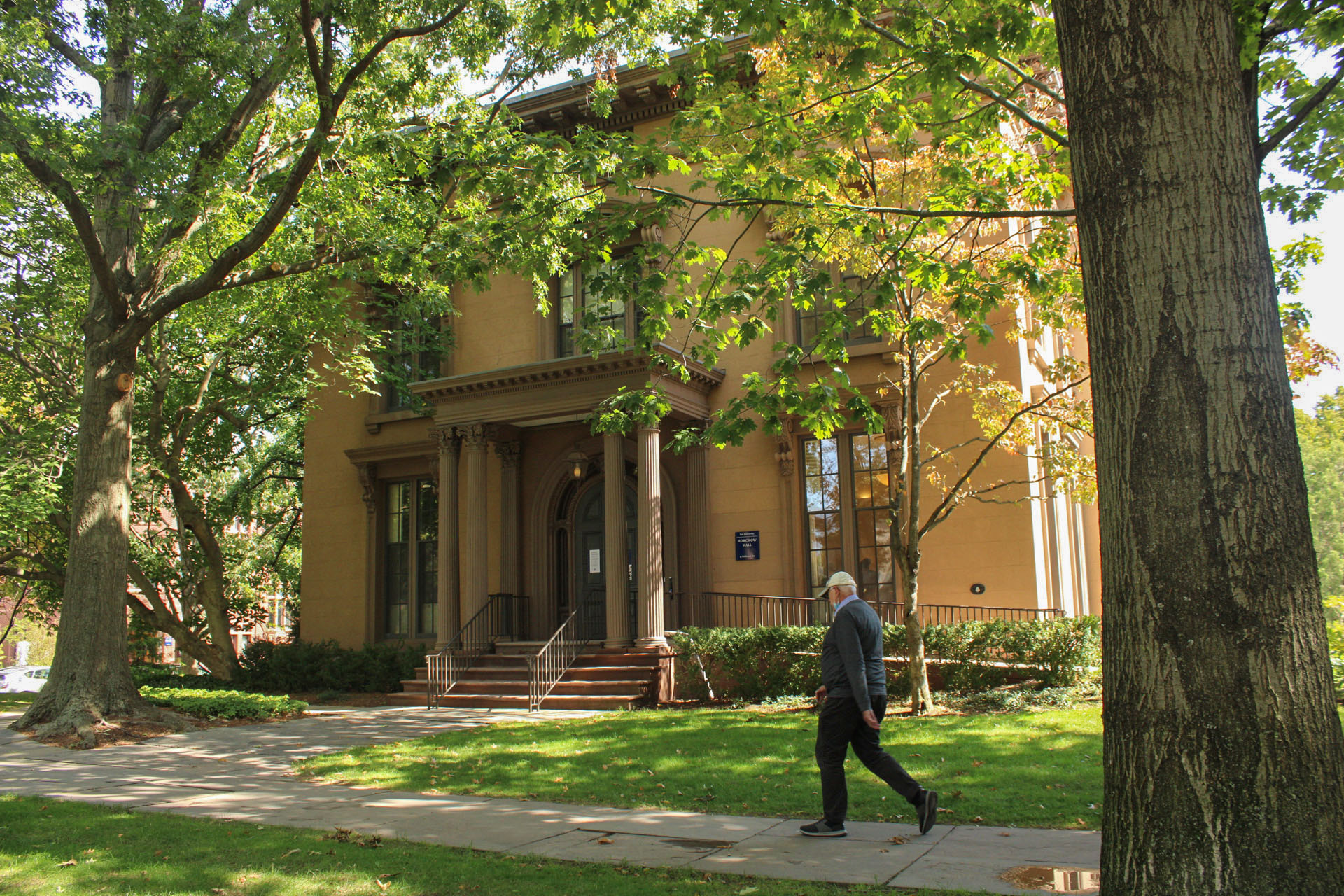Jackson Institute hosts discussion forum on “Sino-Indian Affairs: Competition and Conflict”
Visiting political science lecturer and distinguished Indian journalist Sushant Singh participated in a dialogue about Indo-Chinese diplomatic relations with Elihu professor of history Arne Westad.

Yasmine Halmane, Staff Photographer
On Nov. 11, the Jackson Institute of Global Affairs hosted a discussion forum on “Sino-Indian Affairs: Competition and Conflict” featuring Sushant Singh, a visiting lecturer in political science and South Asian studies.
The event, held both in person and over Zoom, was moderated by Director of International Security Studies and Elihu professor of history Arne Westad. Ted Wittenstein, executive director of international security studies and lecturer at the Jackson Institute, introduced Singh as an award-winning journalist and Westad as a leading scholar of modern Chinese history. The discussion centered around the increasingly volatile relationship between India and China.
“My concern is on the overall relationship between China and India which has gone from bad to worse in the last few years,” Westad told the News prior to the event. “I think we’ve seen a number of incidents mainly connected to the border that endanger international peace, and within China and India there is an increasing preoccupation and worry about that relationship.”
The dialogue between Singh, Wittenstein and Westad began with a presentation from Singh on his perspective about the current Sino-Indian relationship. He discussed the border skirmish between the two nations on June 15, 2020 in the Galwan Valley, which is on the Line of Actual Control between the Indian union territory of Ladakh and the Chinese region of Aksai Chin. He said that the deaths of 20 Indian soldiers and the purported capture of 100 Indian soldiers created what Singh called the “largest crisis in terms of border area between the two countries.”
Singh is a senior fellow at the Centre for Policy Research in India, founded The Indian Cable and was formerly the deputy editor of The Indian Express. He also served in the Indian army for two decades prior to becoming a journalist. He has spent much of his adult life either directly involved in India’s national security or reporting on Indian foreign affairs with its neighbors like China.
“My goal with a dialogue like this is to further increase the awareness of Sino-Indian relations,” Singh told the News. “I was deeply impressed with the questions students and other Yale community members asked me, and I think we had a really productive and insightful discussion.”
The talk also focused on the economic relationship between the two countries, as India and China are now competing with each other on an economic as well as geostrategic level. According to Westad, the economic cooperations between the two countries could lead to a “decrease in tensions between the two sides” which could be beneficial for the “future of China and India [as well as] the future for all of us.”
Singh and Westad also discussed the effects of “Hindu and Han nationalism” within India and China, respectively, and how “increasingly nationalistic” governments were contributing to tense and volatile confrontations between the two countries.
While the first half of the talk was a discussion between Westad and Singh about their areas of expertise, the latter half of the talk allowed for a question and answer session between the virtual and in-person audience and the two panelists.
Singh and Westad were asked questions about the Quadrilateral Security Dialogue, which includes the United States, Japan, Australia and India, as well as the economic conflict that has emerged between the two nations. Singh also fielded more India-centric questions about the current Modi regime and what he characterized as a “backwards slide in both human rights and democracy in India under Prime Minister Modi.”
Daevan Mangalmurti ’24, an attendee at the event, asked Singh about how India should deal with its traditional rival of Pakistan as well as other neighboring countries like Bangladesh, Sri Lanka, Nepal and Bhutan.
Mangalmurti told the News that he was impressed by the analysis of the situation and how Singh refused to engage in any form of grandstanding quasi-nationalism.
“I think [I had] a baseline impression about what this issue is about and had informal conversations about what this is about, but the depth and breadth that was explored in just about 30 minutes was fantastic,” said Anne Northrup ’22, who also attended the event. “I’m leaving excited and this was a very cool event.”
Northrup said she was interested in the question of other areas of possible cooperation, particularly in diplomatic and economic channels, that might serve as alternatives to the narrowing option of a border war.
According to Westad, these talks are part of an ongoing series of dialogues within the international security studies program and he hopes to continue meeting with distinguished individuals like Singh for conversations about diplomatic relations between various nations.
Singh is the author of “Mission Overseas: Daring Operations by the Indian Military,” which was published in 2017.







